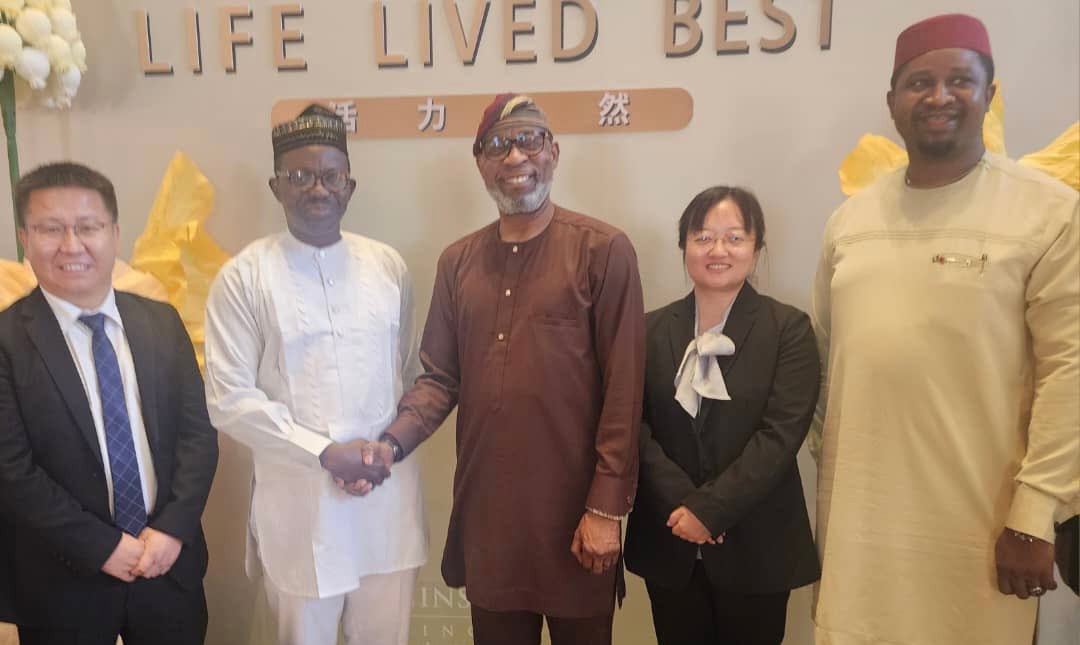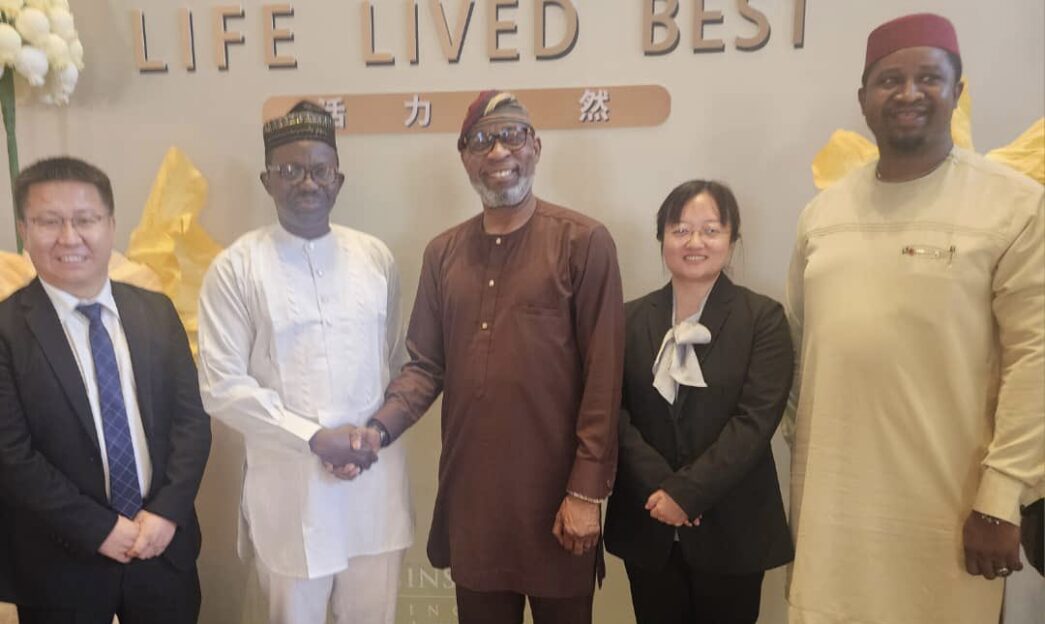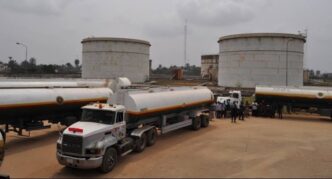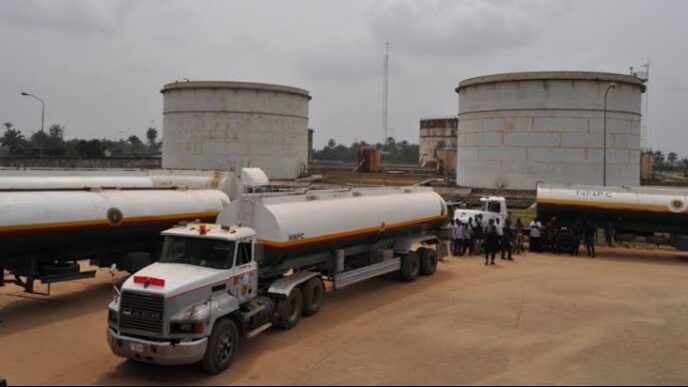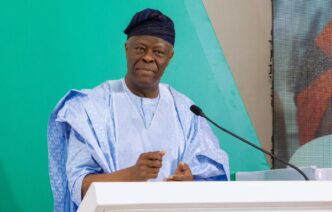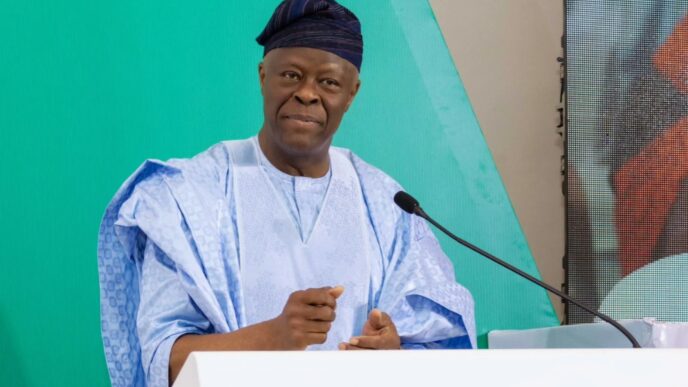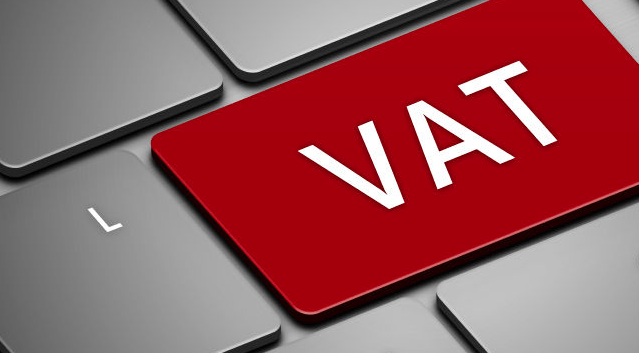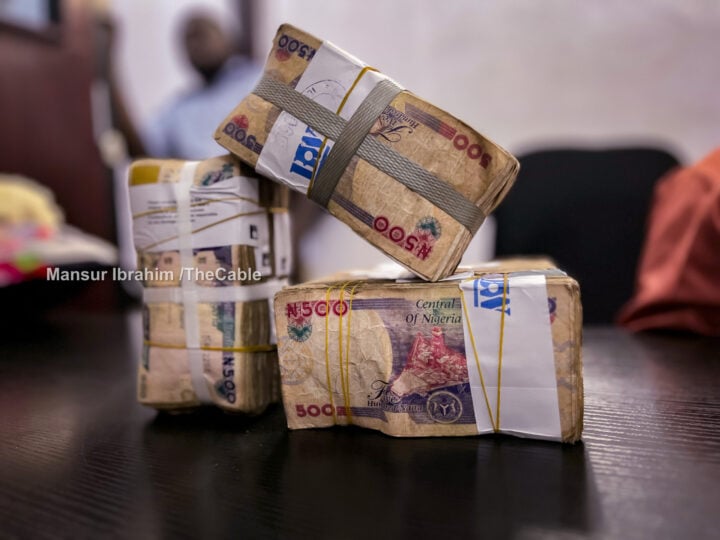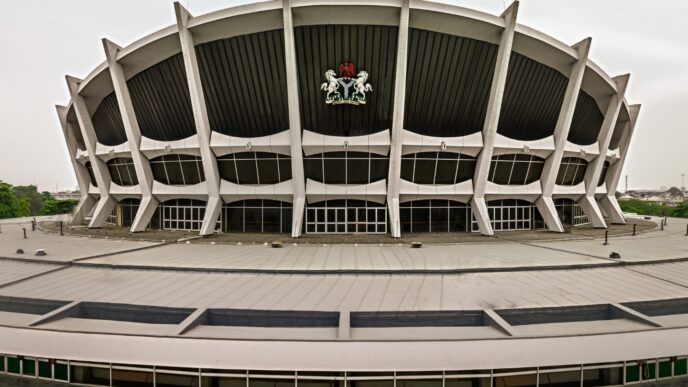Sinomach-He, a Chinese firm, and Chart and Capstone Integrated Limited, a Nigerian company, have signed a memorandum of understanding (MoU) on the proposed $1 billion (N1.6 trillion) iron ore-to-steel project planned in Kogi.
According to a statement on Sunday, the companies presented the MoU to Dele Alake, minister of solid minerals development, at an event held on the sidelines of President Bola Tinubu’s visit to Beijing, China.
Abel Edijala, chief executive officer (CEO) of Chart and Capstone Integrated Limited, commended the minister for implementing an efficient licensing process “free of red tape and corruption”.
“We applied for an exploration licence for our iron ore mining project at the Mining Cadastral Office, and we did not need to see anybody before our application was approved within a reasonable period,” Edijala was quoted as saying.
Advertisement
“This shows that the system you have put in place is fair and works for all. I must commend you for this.”
Speaking on the project Edijala said the model involves the supply of steel from the iron ore site to the manufacturing plant, which will expand to meet the industrialisation needs of the Nigerian economy.
He said the project would require tax waivers for the importation of equipment and tax holidays during the initial phase to manage macroeconomic fluctuations and achieve its targets.
Advertisement
Hou Encai, vice-manager of Sinomach-He, emphasised the company’s readiness to commence the project, noting that the state-owned firm, established in 1958, has over 15,000 employees, including 2,000 engineers, to support its operations.
Encai said the company is involved in mining, iron production, steel rolling, steel manufacturing, and infrastructure construction, and it supplies 80 percent of the steel required by the Chinese economy.
“In mining, we have the technology on how to excavate the ores from the earth. We can evaluate the iron ore potential of any site and tell you what the feasibility of mineral extraction is on a site,” he said.
“Secondly, we have the equipment needed, including excavators and drilling machines for mining iron ore. For transportation of iron ore from site to the factory, my group produces the trucks.”
Advertisement
Under the agreement, according to the statement, Sinomach-He will serve as the master contractor, utilising its expertise in engineering, procurement, installation, commissioning, and training for the project.
Gbadebo Afolabi, Nigeria’s consul-general to China, was to have confirmed Sinomach-He’s integrity, adding that an embassy team had conducted due diligence on the company and deemed it suitable for the transaction.
In his remarks, Alake assured the companies of the government’s cooperation to expedite the project’s completion.
‘LOCAL VALUE ADDITION CRUCIAL TO REDUCING DEBT BURDEN’
Advertisement
He lauded the project as a major breakthrough in the government’s drive for local value addition in the solid minerals sector.
Alake said the government has reversed the pit-to-port policy, where mining companies exported raw minerals, with a focus on local extraction and value addition.
Advertisement
The minister said the shift is the most effective way to create jobs for the youths, facilitate skills transfer and improve the trade balance between the country and its trading partners.
To promote local value addition, he said his ministry introduced a requirement for mining licence applicants to include plans for processing raw minerals as a condition for approval.
Advertisement
“The trade balance between Nigeria and China is over one billion dollars in favour of China because the minerals imported from Nigeria are essentially in raw forms,” Alake said.
“Once Nigeria starts to export finished or semi-finished value-added mineral products to China and other trading partners, our balance of trade will be more favourable, and our foreign exchange earnings will improve.
Advertisement
“With aggressive local value addition and the revenue from it, the prospects of reducing our debt burden in the nearest future is possible.”
Other attendees at the meeting included He Lixiong, executive secretary-general of the working committee for overseas cooperation of the China Association of Small and Medium Enterprises; Innocent Okonkwo, chairman of the Belt and Road Africa Economic Initiative; Li Ke, general manager of Sinomach-He overseas; and Deng Shiyuan, senior project manager.
Add a comment
